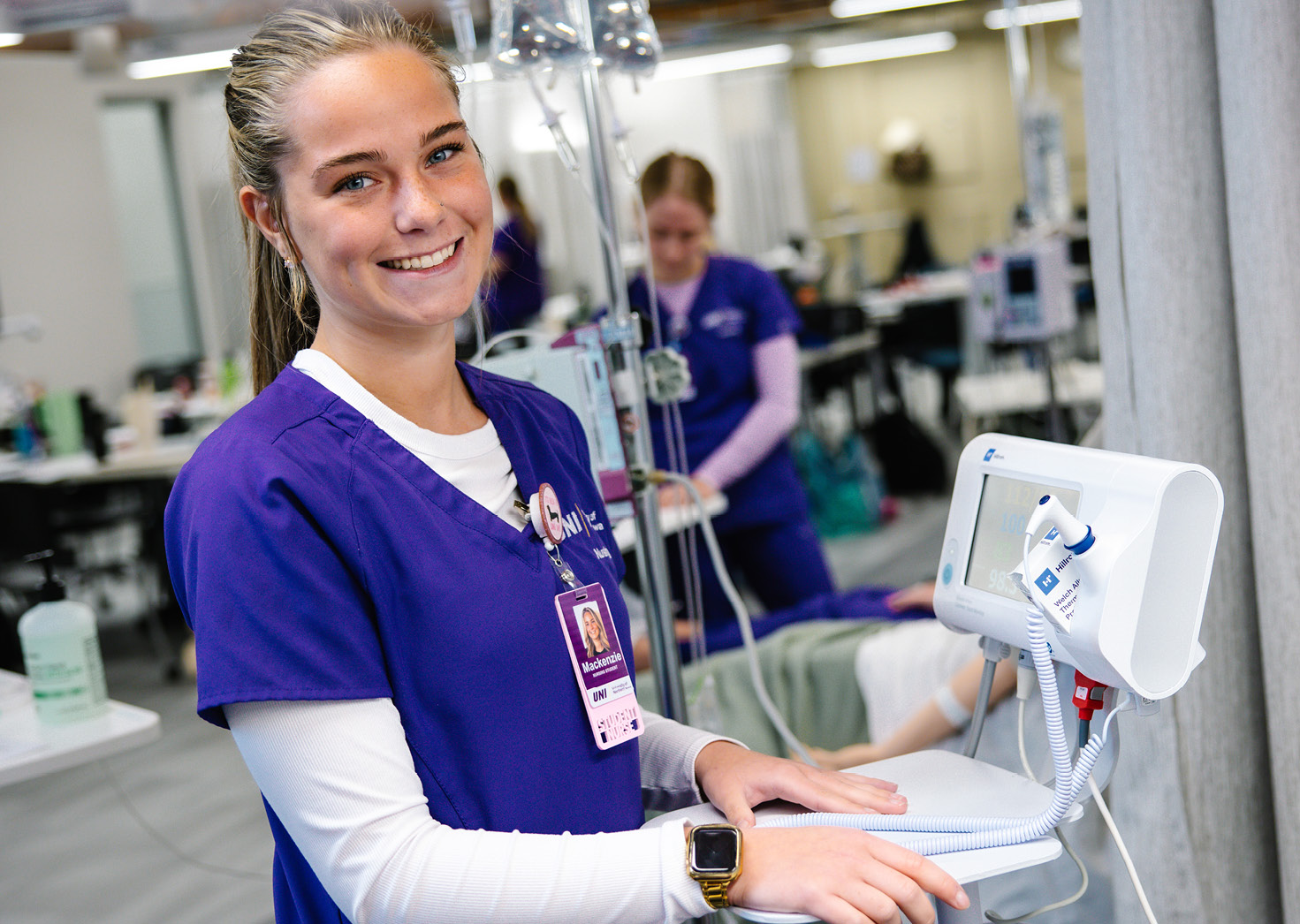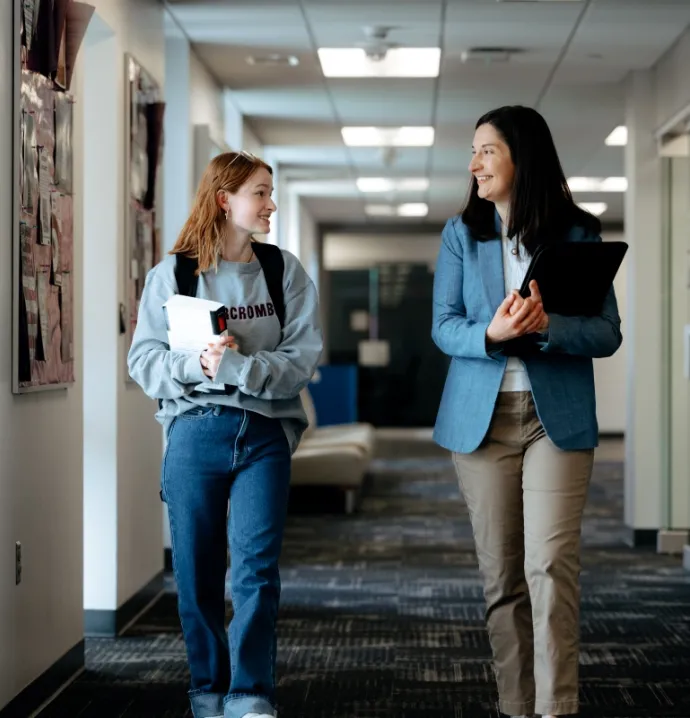Charting her path
Charting her path
 During her junior year at Bettendorf High School, Mackenzie McDonald took advantage of a new program that allowed her to earn her CNA certification.
During her junior year at Bettendorf High School, Mackenzie McDonald took advantage of a new program that allowed her to earn her CNA certification.
She loved the class and quickly realized that nursing was her calling, but due to the pandemic, she didn’t get much hands-on experience. About six months after passing the CNA exam, McDonald took a job at The Summit of Bettendorf, a senior living community, where she worked in long-term and rehab care.
She continued on the nursing path when she chose to further her education at UNI, drawn by its small class sizes.
“The summer before college started, UNI announced their nursing program,” McDonald shares. “I didn’t think much about it besides the fact that I would most likely apply when the time came. I was later lucky enough to get accepted into the first cohort.”
Now a junior, McDonald has had ample hands-on experience in her nursing courses. She’s learned how to conduct a full head-to-toe assessment, including how to greet and evaluate a new patient and distinguish normal from abnormal findings. She’s also been trained in catheterization, applying different wound dressings, placing nasogastric tubes and understanding various disease processes. Currently, she’s diving into medications and drug classifications and this fall, she’ll begin clinical rotations.
McDonald knew early on that she wanted to work in health care, though she wasn’t sure in what capacity. After taking elective courses in high school, shadowing professionals and talking with her mom — a pediatric cardiology nurse — she landed on nursing.
“I have been taught the importance of helping others all my life by my parents, so nursing just fits,” she says, noting that her dad is an assistant chief at the Bettendorf Fire Department.
The diversity and job security within nursing are among the top reasons she chose the profession. The UNI nursing program prepares students for a wide range of career settings, from hospice to obstetrics and pediatrics, ensuring students have a strong foundation for a variety of job opportunities.
“It’s a known fact that most nurses don’t stay in the field they start in as a new grad, and I love that,” McDonald says. “I learned that with nursing, you can have your BSN and not have to have many extra certifications to switch fields. At UNI, we get so many different clinical rotation sites to see what we like and don’t like.”
Plus, in the final semester of their senior year, nursing students complete a capstone experience in which the department arranges a clinical placement aligned with their interests.
One of the things McDonald has enjoyed most about UNI’s nursing program is being part of the first cohort. She appreciates the small class size, which has allowed her to build strong friendships and develop close relationships with faculty.
“There aren’t many nursing programs where the head of the department knows students by name,” she says.
“Dr. Kertz is constantly walking around the building, checking in on our classes and even sometimes giving us input on what we are learning.”
One professor McDonald has especially connected with is Clinical Assistant Professor Natalie Nedza, MSN, RN.
“One of Mackenzie’s most notable qualities is her empathy and genuine concern for patient care and a desire to go above and beyond.”
“In addition to her clinical skills, Mackenzie is also an excellent team player," said Nedza. She works well with other students and is always willing to lend a helping hand. Her positive attitude and strong work ethic make Mackenzie a valuable asset to any team.”
Outside of her studies, McDonald continues working at The Summit of Bettendorf when she’s home. She’s grateful for the job and even more grateful to have earned her CNA before starting her BSN program. She encourages other students to get their CNA first because it can help them determine whether nursing is the right path for them.
“As I have gone through classes, there is so much information and care that I’m already familiar with that some students have never seen,” McDonald says. “It has made the process significantly easier and given me the communication skills to talk with patients and families. I felt confident performing my skills check-offs because I have already had so much patient communication experience.”
McDonald plans to graduate in May 2027 and work in a hospital setting.
Eventually, she hopes to return to school to become a nurse practitioner so she can have more authority in patient care, including the ability to diagnose and prescribe medications.
Thankfully, no matter where her career takes her, McDonald is confident in her ability to make an impact, equipped with her nursing degree from UNI.




